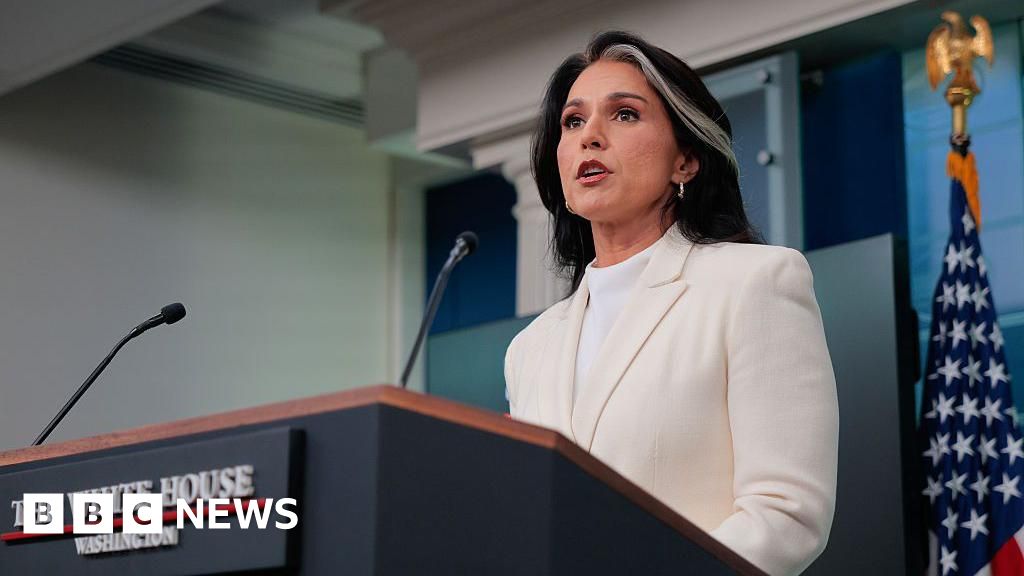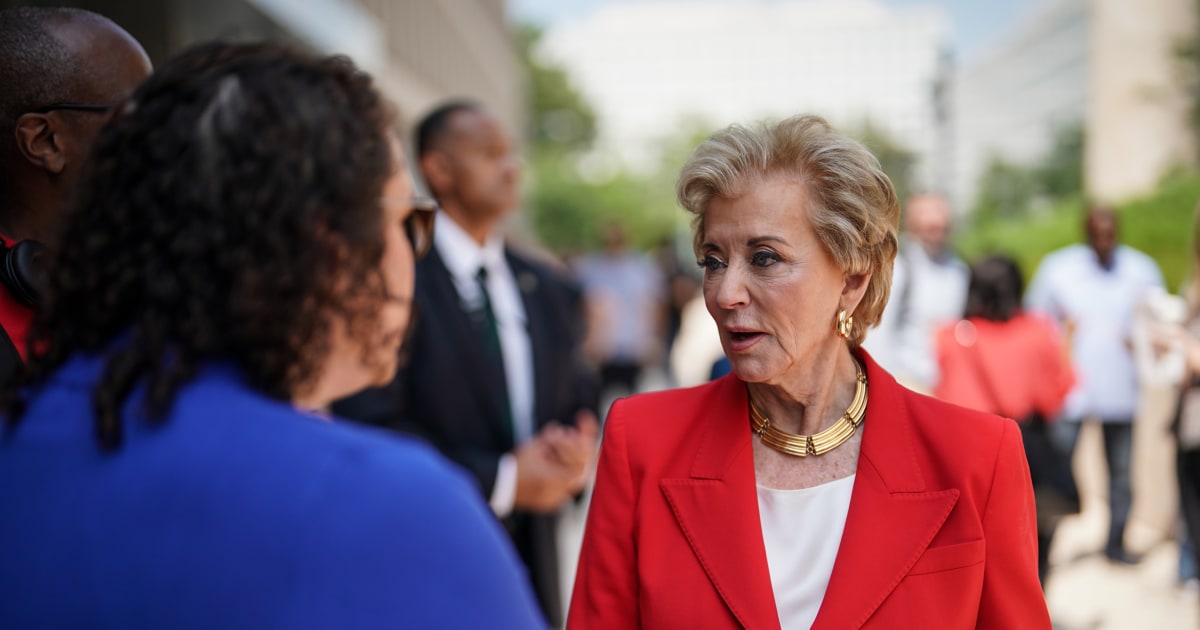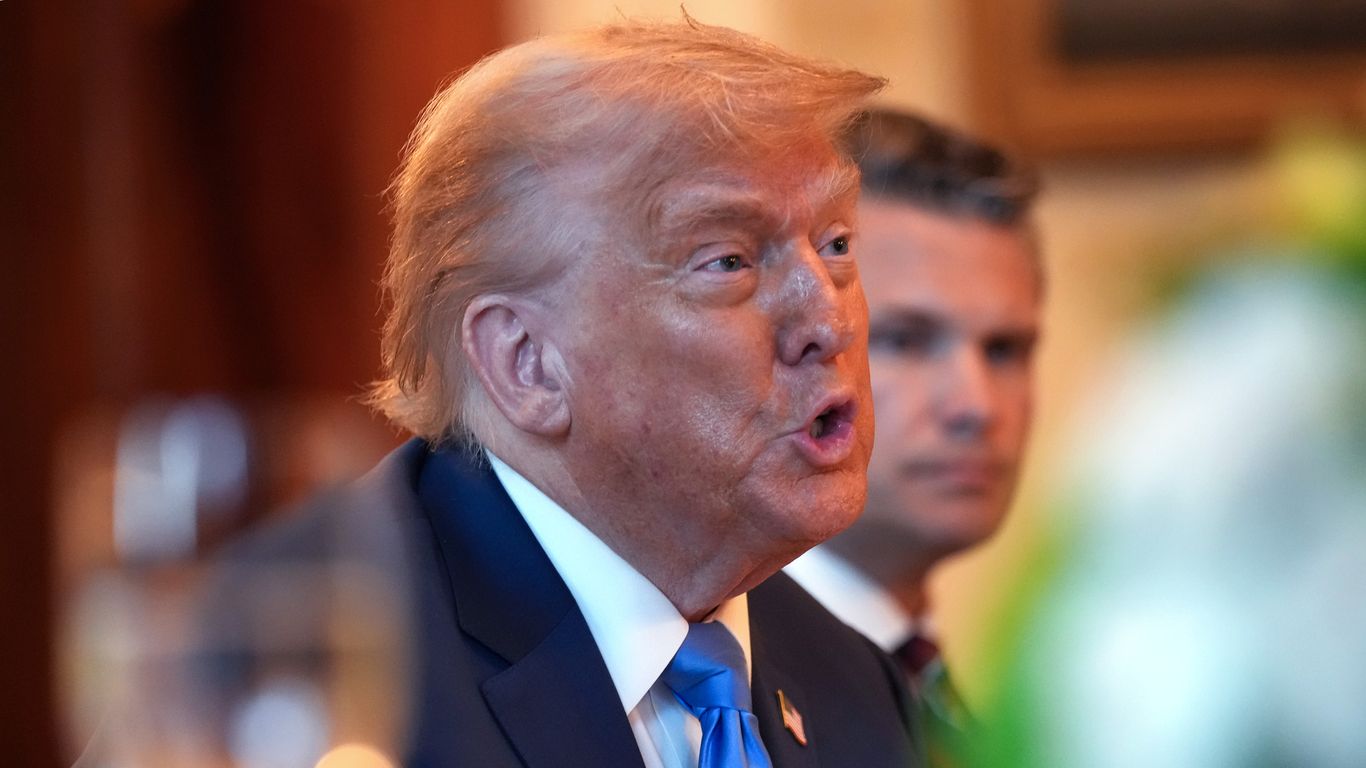Could Defense Secretary Hegseth's Management Style Lead to His Downfall?

Introduction
The Trump administration has been standing by Defense Secretary Pete Hegseth, despite concerns about his management style. But as Politico reports, even some of Hegseth's allies are beginning to worry that his approach could ultimately lead to his downfall.
Trouble in Paradise
It's no secret that Hegseth has a reputation for being a bit of a loose cannon. While some admire his no-nonsense approach, others worry that his unconventional style could ultimately backfire. For instance, some of his closest allies have expressed concerns about his tendency to make impulsive decisions without fully considering the consequences. This has led to some messy situations within the Defense Department, and some fear that it could eventually lead to Hegseth's downfall.
The White House's Support
Despite these concerns, the White House has remained steadfast in their support of Hegseth. President Trump himself has praised Hegseth's tough leadership style, and has even defended him against criticism from within his own party. However, as Politico reports, some White House officials are privately expressing worry that Hegseth's unpredictable behavior could ultimately become a liability for the administration.
In Conclusion
It's clear that the Trump administration is firmly behind Defense Secretary Pete Hegseth, for now. However, as his management style continues to raise eyebrows and
About the People Mentioned
Pete Hegseth
Pete Hegseth is an American government official, author, and former television personality. Born on June 6, 1980, he graduated from Princeton University in 2003 and later earned a master's degree in Public Policy from Harvard University's John F. Kennedy School of Government in 2013[1][4]. Hegseth was commissioned as an infantry officer in the Minnesota Army National Guard, serving in Guantanamo Bay, Iraq, and Afghanistan. He received several military awards, including two Bronze Star Medals and the Combat Infantryman Badge[3][4]. After his military service, Hegseth worked with organizations such as Vets for Freedom and Concerned Veterans for America, where he served as executive director and CEO, respectively[1][7]. He became a contributor to Fox News in 2014 and later co-hosted *Fox & Friends Weekend* from 2017 to 2024[1][5]. Hegseth has written several books, including *American Crusade* and *The War on Warriors*, the latter being a New York Times bestseller[3][5]. In November 2024, Hegseth was nominated by President-elect Donald Trump to be the Secretary of Defense. He faced a contentious confirmation process, with allegations of misconduct and financial issues. Despite these challenges, Hegseth was confirmed by the Senate on January 25, 2025, with Vice President JD Vance casting a tie-breaking vote[1][2]. As Secretary of Defense, Hegseth has been involved in several significant events, including ordering budget cuts and firing top military officers to "focus our military on its core mission"[2]. He has also been at the center of controversy regarding the use of the Signal messaging app for sharing sensitive information[2]. In September 2025, Hegseth addressed senior military leaders, emphasizing the need for tighter fitness standards and opposition to certain policies he termed "woke garbage"[1].
Donald Trump
Donald John Trump, born June 14, 1946, in Queens, New York, is an American businessman, media personality, and politician. He graduated from the University of Pennsylvania’s Wharton School in 1968 with a degree in economics. In 1971, he took over his family’s real estate business, renaming it the Trump Organization, through which he expanded into building and managing skyscrapers, hotels, casinos, and golf courses. Trump gained widespread fame as the host of the reality TV show *The Apprentice* from 2004 to 2015, which helped establish his public persona as a successful entrepreneur. Trump entered politics as a Republican and was elected the 45th president of the United States, serving from 2017 to 2021. His presidency was marked by significant policy actions including tax cuts, deregulation, the appointment of three Supreme Court justices, renegotiation of trade agreements (notably replacing NAFTA with the USMCA), and a focus on immigration control including border wall expansion. He withdrew the U.S. from international agreements such as the Paris Climate Accord and the Iran nuclear deal, and engaged in a trade war with China. His administration’s response to the COVID-19 pandemic was criticized for downplaying the virus’s severity. Trump was impeached twice by the House of Representatives—first in 2019 for abuse of power and obstruction, and again in 2021 for incitement of insurrection—but was acquitted by the Senate both times. After losing the 2020 election to Joe Biden, Trump challenged the results, culminating in the January 6, 2021, Capitol riot. He remains a central figure in American politics, having won the 2024 presidential election and returned as the 47th president in 2025, continuing to promote policies aimed at economic growth, border security, and military strength[1][2][3][4].
About the Organizations Mentioned
Defense Department
The United States Department of Defense (DoD) is a vast federal agency responsible for coordinating and supervising all agencies and functions related to national security and the U.S. Armed Forces. Headed by the Secretary of Defense, who reports directly to the President, the DoD oversees over 1.4 million active-duty military personnel across six armed services, nearly 778,000 National Guard and reservists, and over 747,000 civilian employees, totaling more than 2.9 million personnel[2]. It includes three military departments—Army, Navy, and Air Force—and several key agencies such as the Defense Intelligence Agency, National Security Agency, and the Defense Advanced Research Projects Agency (DARPA), which focuses on cutting-edge military technology research[2]. Founded in 1947, the DoD has evolved into a global military force, charged with defending the U.S. homeland, projecting power abroad, and maintaining technological superiority. Its history is marked by significant achievements in military innovation, strategic defense initiatives, and global leadership in defense technology. Currently, the DoD is undergoing a major transformation initiative in 2025, aimed at streamlining workforce structures, reducing bureaucracy, and reallocating budgets to prioritize emerging threats and modern capabilities such as missile defense, nuclear modernization, and unmanned systems[1][3]. The Fiscal Year 2025 National Defense Authorization Act (FY25 NDAA) authorizes significant funding for modernization, including $143.8 billion for research and development and $33.5 billion for shipbuilding, emphasizing innovation and readiness[3]. A presidential executive order in 2025 mandates a sweeping reform of defense acquisition processes to accelerate procurement, enhance flexibility, and spur innovation within the defense industrial base[4]. This modernization effort reflects the DoD’s strategic emphasis on agility, speed, and technological edge in an increasingly complex global security environment. Notable aspects of the DoD include its integration of advanced technologies, such as AI-powered tools for operational effectiveness
White House
The **White House Office** is a central organizational component within the Executive Office of the President of the United States (EOP), tasked with supporting the President in managing day-to-day operations, policy formulation, and political affairs. It is headed by the White House Chief of Staff and staffed by senior aides who report directly to the President, including those with titles such as Assistant to the President and Deputy Assistant to the President. These staff members are mostly political appointees without the need for Senate confirmation, allowing the President considerable discretion in shaping the office to suit each administration's priorities[1]. Historically, the White House Office was established in 1939 through Reorganization Plan 1 and Executive Order 8248 to provide immediate assistance to the President. It functions as the nerve center for presidential staff, physically located primarily in the West Wing, and plays a pivotal role in managing the President’s policy agenda, communications, and political strategy. Its flexible organization allows each President to tailor the staff composition and roles according to their governance style and objectives[1]. In the current context of 2025, the White House Office operates under the administration of President Donald J. Trump, who returned to office after the 2024 election. His administration emphasizes rejecting prior policies deemed extremist and focuses on enhancing quality of life, economic growth, and American energy dominance. The administration includes Vice President JD Vance and First Lady Melania Trump, among others, with a Cabinet advising on various governmental functions[4][6]. Recent initiatives linked to the White House’s operational sphere include the establishment of a new **Department of Government Efficiency (DOGE)** aimed at modernizing federal technology and software to boost government productivity. The DOGE agenda is implemented through the renamed United States DOGE Service within the Executive Office, reflecting a concerted push to leverage technology for administrative modernization[5]. Notably, the White House Office also coordinates national security and homeland security functions through the National Security Council staff, underscoring its central role
Politico
## Overview Politico is a leading political journalism organization specializing in coverage of politics, policy, and the personalities shaping these arenas in the United States and globally[1]. Based in Arlington, Virginia, Politico delivers news and analysis through a variety of platforms, including a daily newspaper, website, newsletters, podcasts, and digital TV[2][3]. The organization is recognized for its rapid news reporting, in-depth policy analysis, and its influence in political and business circles. ## History Founded in 2007, Politico emerged as a disruptor in political journalism, capitalizing on digital media’s rise to challenge traditional outlets[1][3]. Its founders, including former Washington Post journalists, aimed to provide real-time, insider-focused political coverage. In 2021, Politico was acquired by Axel Springer SE, a major German media conglomerate, marking a significant expansion of its international footprint[2]. ## Key Achievements Politico is best known for breaking major political stories, setting the agenda in Washington, D.C., and beyond. It has built a reputation for scoops on presidential elections, congressional maneuvering, and policy debates. The launch of Politico Pro in 2011 further solidified its niche, offering subscription-based, policy-specific intelligence for professionals in healthcare, technology, and energy sectors[5][6]. This platform is lauded for its nonpartisan, fact-based reporting tailored to policy experts and businesses[5][6]. ## Current Status Today, Politico operates as a global news and information company with offices in Washington, D.C., New York, Brussels, and major U.S. state capitals, reflecting its ambitious expansion[4]. With over 1,000 employees and annual revenues exceeding $245 million, it remains a major player in digital and traditional political media[3]. Politico’s content is distributed across multiple platforms, ensuring wide reach among policymakers, business leaders, and engaged citizens. ## Notable Aspects Polit













